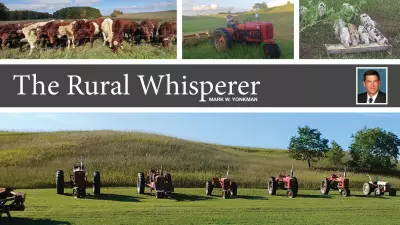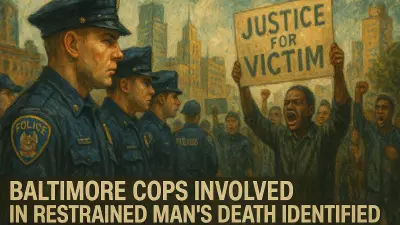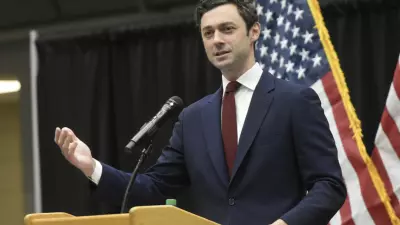In Part II of his advice for Kamala Harris, Postindustrial Columnist Mark Yonkman implores the candidate to concentrate on the Electoral College and not criticize it during the race (no matter how infuriating it may be).

Mark Yonkman is the founder of the newly created Super PAC Reclaim the Rural Vote and a rural vote messaging expert. Mark’s background straddles not only the rural and urban worlds but the black/white, gay/straight, and farm/professional worlds as well.
In Hillary Clinton’s recent op-ed giving Kamala Harris pointers on how to win, she again took the time to rehash how she won the popular vote. Which is absolutely true – she ran a terrific campaign for the popular vote and won it. It is just too bad that is not how our system works. She won only 20 states to Trump’s 30.
The vice president can avoid making that same mistake because she has a once-in-a-generation superpower – she already has the nomination.
Not running a primary campaign allows Harris to gently move from left to center. She doesn’t have to worry about coastal activist groups. Nor does she have to worry about the donor class on the coasts like a typical candidate.
Harris finds herself more in the situation Trump does and she can leverage this. It provides her with a unique opportunity to push back on her base and donors like Trump does. Voters love this because it shows strength and that you are your own person.
Forget the Popular Vote – this is a race for the Electoral College vote
POLITICO noted this week that California environmental groups had not yet endorsed Harris.
Who cares? They control zero votes, and no one can live up to their purity tests in any event. California and New York have zero impact on the presidential election for Democrats from a voter point of view. It is simply where the donor class lives.
Avoid this mistake and instead maintain a laser-like focus on the Electoral College vote. Remember the character of the Upper Midwest – it is where the bulk of the votes are. It has a character that is heavily military, farm, and rural.
During Hillary’s campaign, she spoke constantly about gays, Blacks, and women – which exactly describes my family. Yet I kept wondering, “But you already have my vote – why not talk to my neighbors instead?” It was as if she was perpetually in a primary campaign mode and looking for donor funds. She didn’t have a single rural voice on her team, and it showed. Don’t make this mistake.
Ignore rural statistics unless you are certain the statistics have excluded the rural South and rural Southwest. That is where all the problems are.
In a recent book, White Rural Rage, two wealthy White urban East Coast men who have not experienced a “life lived” went all in on this mistake. They used examples from former slave states and the rural Southwest to paint a bleak picture of rural America and then applied it to the Upper Midwest. You will lose if you do that – none of their metrics apply to the rural Upper Midwest, which never had slavery and was populated after slavery was ended in the U.S. When you think “rural,” think of a smart and capable Wisconsin dairy farmer who has a strong sense of personal agency.
As an example, statistics tell us that rural voters have a lower voter participation rate than urban voters. That is true on the national level but only because the rural South and Southwest bring that average down. In Michigan, Wisconsin and Minnesota rural voters vote at a much higher rate than their urban counterparts. My township had a 67% participation rate in the last midterm election. Those are the states that matter to you.
One thing I learned from JD Vance’s book Hillbilly Elegy is just how different and bleak it is in the rural South. My upbringing on our family farm was much more Currier and Ives and has no relationship to JD Vance’s background.
Learn and leverage this.
Every time you talk about any issue, consider the military implications. Rural voters in the Upper Midwest are very concerned about our military preparedness on many levels. They are concerned about the current wars we are fighting by proxy spilling over to the U.S. in some form.
Trump knows this and very strategically makes WW III references like he did in the last Presidential debate. Rural voters are concerned that we have not leaned into the supply chain lessons of the COVID epidemic.
These voters are happy with tariffs that will wean us from dependence on China even if it makes prices higher. They view this as a national defense issue. Don’t argue economics when it is a national security issue.
I never heard any of these issues when I lived in New York – urban voters simply don’t think this way. One of the first things I would do is appoint someone like Admiral Stavridis to be my Strength and Resilience Czar to look at both supply chain resilience and to ensure that our transition to green energy isn’t creating military pitfalls. Your Electoral College voters are concerned about these issues.
Understand the very complicated relationship rural voters have with union members. Sometimes they align and then they don’t. Navigate this. Leverage it when they align.
Don’t overplay the abortion issue. Rural voters in the Upper Midwest are happy with our current abortion rights. I hear all the time from Democratic rural voters that they wish the vice president would stop talking about abortion and identify some new issues. Even in the remaining 4 swing states of Nevada, Georgia, Arizona, and North Carolina, it is only Georgia that is overly restrictive at 6 weeks. Abortion is primarily a popular vote strategy and needs to be deployed very tactically for the Electoral College vote. Use it in Georgia.
Focus a significant portion of your energy on the issues that concern non-urban voters in the Upper Midwest. I have kept a list of every complaint I have heard since returning to my family farm. That list now runs 4 pages and almost none of them are partisan. Many are very insightful military concerns. Make sure you understand those issues.
Never criticize the Electoral College during an election cycle
Rural voters believe that it is only because of the Electoral College that they have any voice in national politics at all.
My sense is that Democrats understand this. Democratic allies don’t appreciate how talk of elimination turns off rural voters (while Trump understands this very well and says he “loves” the Electoral College).
We should do everything we can to put a pause on that debate. I agree that the Electoral College needs to be eliminated or modified.
I also think we need time to think through what a modification might look like. A pure popular vote in a nation-state composed of 50 individual self-governed states runs the same risk as pure democracy – it is possible to lose 49 states and still win the popular vote.
Indeed, Hillary won only 20 states, compared to Trump’s 30 states, yet it still could have been worse. What if she won only 10 states and still had the popular vote?
Let’s put this debate aside for another time.
Can Kamala Harris Win?
Harris’ path forward requires a pivot to the middle. She must ensure that she has military, rural, and farm voices in her ear.
Harris needs to pivot to a personal agency agenda like President Obama’s that all of us can get behind to sell her presidency in the Upper Midwest. His platform is why he won all 8 Upper Midwestern states, including Indiana and Ohio.
Team Harris needs to make sure the momentum is not just on the coasts, which have zero relevant votes. The vice president’s superpower of already having the nomination gives her the ability to do this.
Don’t waste it.







